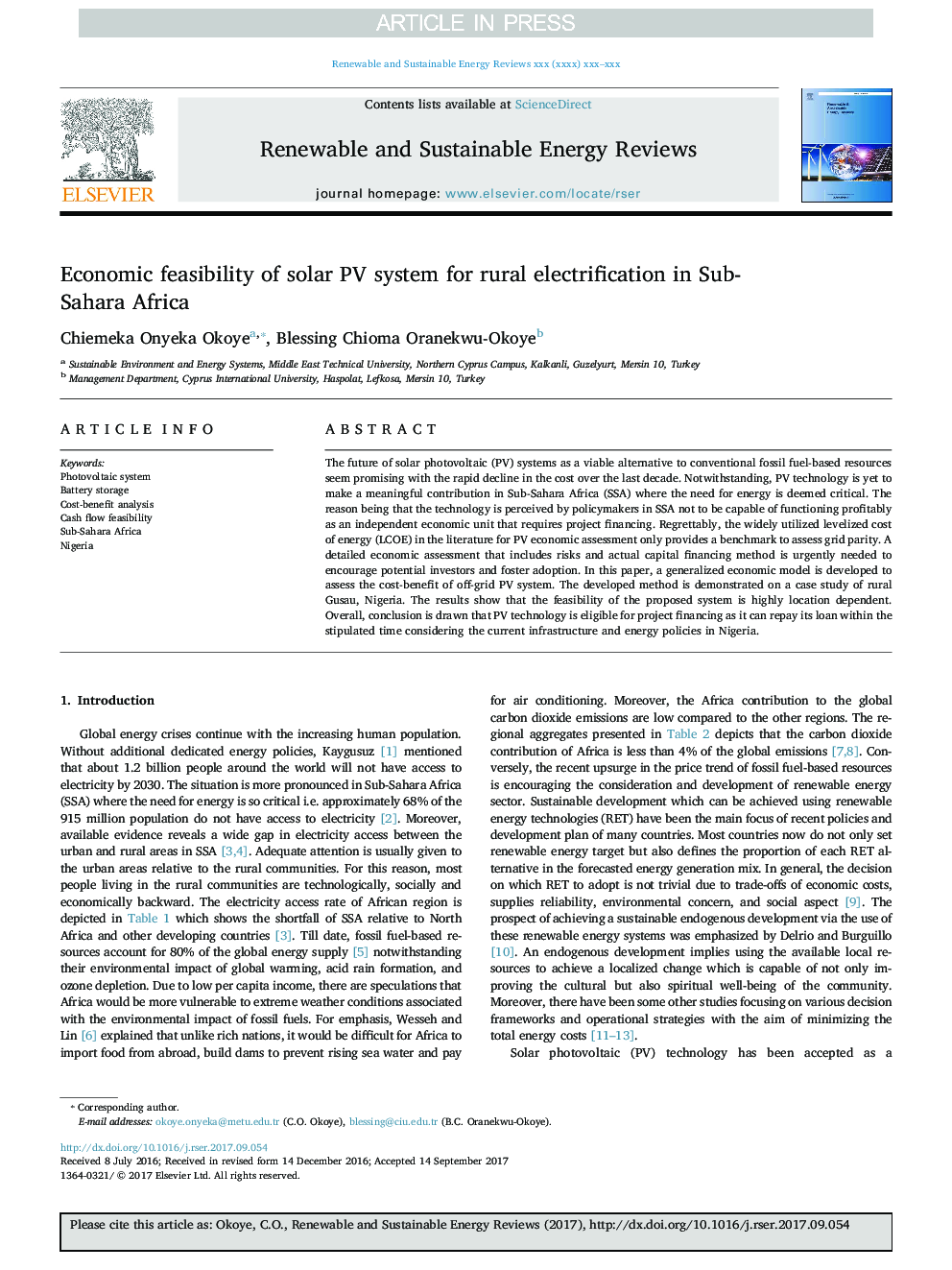| Article ID | Journal | Published Year | Pages | File Type |
|---|---|---|---|---|
| 8111852 | Renewable and Sustainable Energy Reviews | 2018 | 11 Pages |
Abstract
The future of solar photovoltaic (PV) systems as a viable alternative to conventional fossil fuel-based resources seem promising with the rapid decline in the cost over the last decade. Notwithstanding, PV technology is yet to make a meaningful contribution in Sub-Sahara Africa (SSA) where the need for energy is deemed critical. The reason being that the technology is perceived by policymakers in SSA not to be capable of functioning profitably as an independent economic unit that requires project financing. Regrettably, the widely utilized levelized cost of energy (LCOE) in the literature for PV economic assessment only provides a benchmark to assess grid parity. A detailed economic assessment that includes risks and actual capital financing method is urgently needed to encourage potential investors and foster adoption. In this paper, a generalized economic model is developed to assess the cost-benefit of off-grid PV system. The developed method is demonstrated on a case study of rural Gusau, Nigeria. The results show that the feasibility of the proposed system is highly location dependent. Overall, conclusion is drawn that PV technology is eligible for project financing as it can repay its loan within the stipulated time considering the current infrastructure and energy policies in Nigeria.
Related Topics
Physical Sciences and Engineering
Energy
Renewable Energy, Sustainability and the Environment
Authors
Chiemeka Onyeka Okoye, Blessing Chioma Oranekwu-Okoye,
